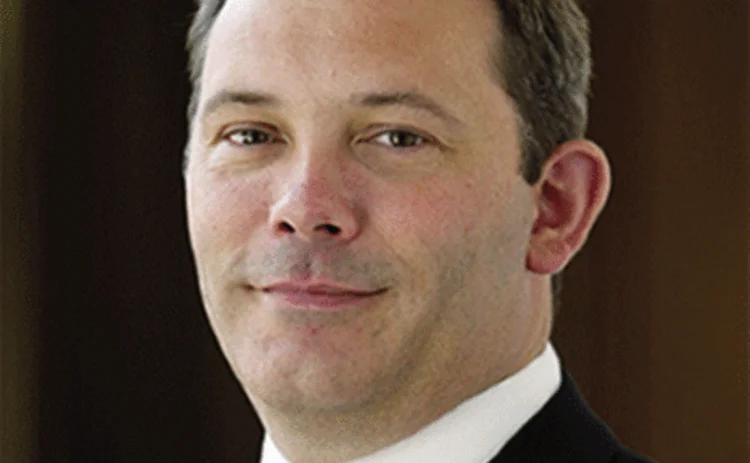
Mutual chief calls for Treasury support for Share Bill and better PRA engagement

The Government has been urged to get behind the Mutual Redeemable Share Bill that was introduced by Lord Naseby in July.
That was the message from Martin Shaw, the chief executive of the Association of Financial Mutuals, speaking at the All Party Parliamentary Group on Insurance and Financial Services on Tuesday.
Asked by APPGIFS chairman Jonathan Evans to outline his "mutual wish-list", Shaw, pictured, said: "We need to get the same Government support that we got from the House of Lords [for the Bill] by the end of the Parliamentary term.
"There is a general sense that there is no lack of support for the concept. But by the same token there appears to be a reluctance from the Treasury to take on and champion the Bill. If there is one thing that I would like this group and the Treasury to do, it is to formally get behind and support this Bill."
Royal London head of corporate affairs Gareth Evans added that his organisation had thrown its "clout" behind the Bill, as it would "make it easier for [his firm] to raise capital" than it presently is.
As things stand, mutuals raise capital from retained earnings or borrowing and can't raise additional funds from their members or other external sources. The Bill, if passed, would create a legal framework for new redeemable shares to be issued in all types of industrial and provident society, friendly society and mutual insurers.
Earlier Shaw had admitted he was "frustrated" by the lack of support his members have so far received from the Treasury, despite the backing seen elsewhere for the likes of credit unions and building societies from the Department of Work and Pensions and Cabinet.
The session saw Evans ask Shaw whether the UK was out of kilter with regards the rest of Europe in terms of the numbers of mutual insurers. The AFM chief told the group that in 1996 more than 50% of the domestic insurance sector was mutual, but that in the subsequent decade that number came down significantly as 90% of the sector demutualised.
However, Shaw insisted that customers had been the main losers of the trend, pointing to the fall in endowment payouts at Scottish Widows as symptomatic of the issues faced by policyholders of demutualised insurers.
Shaw also admitted that since the inception of the twin peaks regulator, the mutual sector had seen more of an "imperfect position with the Prudential Regulatory Authority [in terms of understanding the regulatory challenges of these insurers] than the Financial Conduct Authority, in that at least the FCA was aware of its shortcomings and had taken time to engage with all areas of the industry". By contrast he added the PRA "had a lot to do".
Finally, both Shaw and Evans conceded that there was also work to be done in their own sector to engage with their members, with the "passive membership" seen as one of the factors behind the demise of Equitable Life.
Evans said that since he had been at Royal London it had introduced proxy voting, and charity donation promises to engage policyholders, but that it was "difficult to move" the member vote from the 7 to 7.5% range.
Shaw noted that his members were aware of the need to "improve dialogue away from the 200 page annual report and accounts", by changing "the narrative of reporting to demonstrate the value of [policyholder] membership."
Evans thought that "double figures should be the least of [their] target".
Only users who have a paid subscription or are part of a corporate subscription are able to print or copy content.
To access these options, along with all other subscription benefits, please contact info@postonline.co.uk or view our subscription options here: https://subscriptions.postonline.co.uk/subscribe
You are currently unable to print this content. Please contact info@postonline.co.uk to find out more.
You are currently unable to copy this content. Please contact info@postonline.co.uk to find out more.
Copyright Infopro Digital Limited. All rights reserved.
As outlined in our terms and conditions, https://www.infopro-digital.com/terms-and-conditions/subscriptions/ (point 2.4), printing is limited to a single copy.
If you would like to purchase additional rights please email info@postonline.co.uk
Copyright Infopro Digital Limited. All rights reserved.
You may share this content using our article tools. As outlined in our terms and conditions, https://www.infopro-digital.com/terms-and-conditions/subscriptions/ (clause 2.4), an Authorised User may only make one copy of the materials for their own personal use. You must also comply with the restrictions in clause 2.5.
If you would like to purchase additional rights please email info@postonline.co.uk








